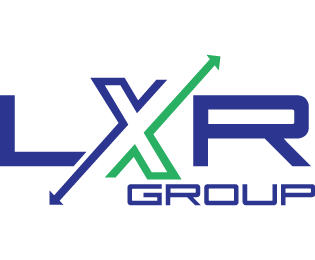On March 29, 2023, the House Appropriations Subcommittee on Financial Services and General Government held a hearing on the FY 2024 Budget Request of the U.S. Securities and Exchange Commission (SEC), which seeks annual funding in the amount of $2.436 billion. The SEC’s request reflects an increase of about $200 million about its FY 2023 enacted budget, which appropriated $2.2 billion for the agency. The sole witness at the hearing was SEC Chairman Gary Gensler.
The hearing marked Chairman Gensler’s first appearance before the Republican controlled House, and his first time testifying before a Congressional panel since September 15, 2022, when he testified before Senate Banking Committee. Here are the key takeaways.
(1) House Republicans devoted the overwhelming majority of their time to criticizing the SEC’s decision to pursue a climate disclosure rule, drowning out all other issues. Whereas Gensler’s previous several appearances before Congress have seen Republicans largely split their focus between crypto-policy and climate risk disclosures, yesterday’s hearing erased any doubt about Republicans’ singular focus at the moment is on the SEC’s climate risk disclosure rulemaking. Indeed, four of the nine Republicans on the Subcommittee – Reps. Ashley Hinson (R-IA), Michael Cloud (R-TX), John Moolenaar (R-MI) and Jerry Carl (R-AL) – used all of their allotted time to criticize Gensler and the SEC for its decision to pursue climate-related disclosures. Committee Chairman Steve Womack (R-AR) similarly used the bulk of his two rounds of questioning to focus on the issue. Only a handful of other issues such as “capital formation,” comment deadlines, and a recent critical SEC Inspector General’s report were mentioned. Even then, these issues were often raised in the context of the climate rulemaking to underscore why the SEC should not be pursuing its climate rule.
(2) House Republicans are contemplating cutting the SEC’s budget by as much as 30 percent – at least according to one Committee Democrat. During the course of questioning, Rep. Norma Torres (D-CA) seemingly stunned Gensler by asking him to discuss the implications of “an across-the-board 30 percent cut” to the SEC’s budget. When Gensler responded that “I hope we’re not talking about that…”, Rep. Torres responded that “We have to talk about that because it is on the table as it relates to the majority’s proposal.” Notably, such a cut was not mentioned by any of the Republican members of the Committee or by other Committee Democrats.
(3) Gary Gensler has a powerful patron in Washington, and it probably isn’t who you thought. A funny thing happened just as Chair Gensler was about to begin his oral testimony when the Subcommittee’s Ranking Member – Rep. Steny Hoyer (D-MD) – concluded his opening statement by remarking that “For full disclosure, I’ve known Gary Gensler for probably 40 years – maybe more than that. His father was a good friend of mine. So, I’m not totally objective when it comes to Mr. Gensler himself, but I hope I’m totally objective when it comes to the SEC.”
Then, when it then came time for Gensler to speak, we learned a bit more. Prior to beginning his oral testimony, Gensler discussed “how remarkable it is to be in front of Representative Hoyer, who was a good friend of my father.” Gensler then went on to recall how “When I was a little kid, I would hear about ‘Steny this,’ and ‘Steny that.’ That’s where I’m going to end, but I thank you – it’s really good to be in front of you and to testify before you for the first time.”
Hoyer and Gensler may have preferred to leave it there but having hinted at a long and close personal relationship, the cat was out of the bag. Speaking only a few minutes later, Rep. Matt Cartwright (D-PA) – the second most senior Democrat on the panel – spilled the beans.
Mr. Cartwright: “Chairman Gensler, I was listening to the Ranking Member’s questioning of you and forgive us – there was some whispering up here – it’s not true that the Ranking Member, Steny Hoyer, is actually your godfather – is it?”
Chairman Gensler: “We’re gonna keep that one a little quiet.”
(4) Advocates favoring the inclusion of so-called “Scope 3” emissions in the SEC’s final climate disclosure rule should prepare to be disappointed. In response to Rep. Carl (R-AL) asking “Can you tell us, are you planning to get rid of the Scope 3 emissions,” Chair Gensler came about as close as he could in such a setting to acknowledging that they likely will not make the cut for the final rule. Specifically, in responding to Rep. Carl, Gensler stated: “Well, I don’t want to prejudge because we’re a five-member commission. It’s how we deliberate and when staff recommendations come up. But in terms of the comments that we have received, there’s a handful of areas – in terms of disclosure of greenhouse gas emissions of a company, called ‘scope one,’ and there is disclosure of electricity purchases, called ‘scope two.’ And there is much more support in the comment file – both from investors and from issuers – there than there was [for] ‘scope 3,’ which relates to the supply chain. And it’s not as well developed. And we said this a year and a half ago, in the proposal we say that would only be done by fewer companies and have a big safe harbor.”
(5) Republicans are skeptical of the SEC’s reliance on academics. In one of the few substantive exchanges between a Committee Republican and Gensler that did not relate directly to climate risk disclosure, Committee Chair Steve Womack (R-AR) used a portion of his time to express concern about what he considers an overreliance by the SEC on academia to fill key leadership roles at the Commission. “The SEC is relying almost exclusively on an academic fellowship program to lead some of its most critical divisions. Is it true that four of your six divisions are run by academics? Would it not be helpful for these individuals to have some experience?” In response, Gensler defended his personnel, describing his six division heads as “all terrific…all committed to same three part mission that Congress has laid out.”
(6) The House Financial Services Committee appears to be contemplating a hearing with all five SEC Commissioners as witnesses. FSGG Chair Womack may have revealed a page from HFSC Chair Patrick McHenry’s (R-NC) playbook when he conspicuously and repeatedly sought to get Gensler to “commit to testifying alongside the other Commissioners.” Since there is no precedent for all SEC commissioners appearing before an appropriations subcommittee, the question was likely asked at the behest of the HFSC Chair, in anticipation of a potential oversight hearing to be held later in 2023.
(7) Rep. Matt Cartwright is fed up with FINRA’s unwillingness to address unpaid arbitration awards and wants the SEC to “put the hammer down on FINRA.” In what must have struck some observers as an unexpected line of questioning, Rep. Matt Cartwright (D-PA) opted to use all of his time to focus on the SEC’s oversight of FINRA, and to vent his frustration that such oversight has “for a generation” failed to remedy “the injustice.” At the conclusion of the Congressman’s back-and-forth with Gensler, which saw the Congressman request that “the SEC become more active in and investigating this problem,” Gensler agreed to “commit to you that I will check with the staff to make sure that they understand the importance of this issue.”
(8) Dodd-Frank Section 956 is having a moment, and that renewed interest was evident at yesterday’s FSGG hearing. During a week that featured two hearings on the collapse of Silicon Valley Bank, seemingly everyone has been dusting off a never implemented and scarcely remembered provision of the Dodd-Frank Act that directed financial regulators to prohibit compensation practices that encourage excessive risk taking by executives. The SEC, FHFA, and the banking regulators proposed rules in 2011 and 2016, but they went nowhere. On March 27, a group of organizations focused on investor protection and consumer financial protection sent a letter to the agencies to “urgently request that your agencies issue a final rule” to implement Section 956 of the Dodd-Frank Wall Street Reform and Consumer Protection Act. The case for such rulemaking was raised at Wednesday’s hearing by Rep. Mark Pocan (D-WI). A second issue raised by Pocan was the possibility of reforms to the STOCK Act, a 2012 law that ostensibly prohibits members of Congress from trading on information obtained in their official capacity. That law has seldom if ever been the basis for an SEC investigation or enforcement action.
(9) Gensler seems to be finally finding his footing and voice on crypto. During the course of his two-year tenure as SEC Chair, Gary Gensler has testified before Congress on seven occasions, and fielded upwards of 50 variations of the same question: What is the appropriate role for the SEC with respect to oversight of cryptocurrencies and other digital assets? Despite many public protestations to the contrary, the fact is that the SEC generally, and Chair Gensler in particular, have at least until recently generally sought to sidestep the question and to avoid providing Congressional questioners substantive or even intelligible answers. To the frustration of some in both parties, in lieu of providing his questioners with an actual, substantive insights on his thinking, the Chairman has responded with platitudes about the “Wild West,” with calls for issuers “come in and meet with the us,” and occasionally with dense legalistic answers that seem curious and calculated coming from a non-lawyer – even a non-lawyer tasked with leading what is arguably one of the most over-lawyered agency in government.
The Chairman’s willingness to share his thinking has likely been hastened and sharpened by CFTC Chairman Rostam Benham’s decision to make an aggressive play for jurisdiction over a large swath of crypto assets late last year. While Benham’s ambition to see the CFTC become the primary regulator of many major cryptocurrencies was narrowly thwarted – at least temporarily – by the collapse of FTX in November 2022, the near miss seems to have forced Gensler to rethink and sharpen the way he discusses crypto on the Hill.
We were especially struck by the frank terms in which the Chairman discussed his current thinking on cryptocurrencies in response to a request from Rep. Sanford Bishop (D-GA).
Rep. Bishop: Chair Gensler, for purposes of cryptocurrency, you have a unique experience of chairing both the CFTC and the SEC. It is my understanding that cryptocurrency and other Blockchain technology typically defy categorization as a security or commodity, because quite frankly neither. As you understand more than most people the interplay between the two commissions and the extent of their jurisdictions, I’d like to hear your thoughts on the regulation of the cryptocurrency market. In a particular, how you ensure that consumers are protected from fraudulent and predatory activity. And can you elaborate on what you think the SEC’s role is when it comes to regulating the crypto market, and can you also follow that up by saying whether the SEC has any plans to issue a rule clarify how securities law applies to digital assets.
Chair Gensler: At its core, when Congress set up the SEC it was about protecting investing public and thus the capital formation on the other side with this disclosure and it was about if somebody’s raising money and the public us is giving them money based on their efforts. The Supreme Court 1946 actually defined it and Thurgood Marshall wrote so beautifully a few decades later “Congress painted with a broad brush to protect investing public when they invest in public is basically investing or betting on a group of entrepreneurs.”
Now, crypto tokens, without prejudging any one of them, you can look almost on nearly – well, most of them; I’m not going to say a number – you can find a group of entrepreneurs with a Twitter site with a website with individuals. And I bet that most of you are not visited by decentralized non-existent management. You’re going to get a meeting with somebody from crypto tokens there’s a human, there’s a group of entrepreneurs and they’re paying a lobbyist or paying a lawyer to meet with you. And the public is basically giving up their hard-earned dollars to invest in that token, and that token entrepreneur, should give them full, fair, and truthful disclosure. That’s the core.
Frankly, of the 10 or 12,000 tokens, there are very few that don’t have a group of intermediaries in the middle of the public is counting on. So those are securities, sir, under the securities law.
Rep. Bishop: So, are you going to issue a regulation?
Chair Gensler: The regulations actually already exist, sir, and they are called the securities regulations and so they’re disclosure regulations for when somebody tries to raise money from the public. The “store fronts” in this business call themselves “crypto exchanges” or “crypto lending platforms.” Those store fronts should come into compliance. And our goal is the investor protection and capital formation we’ve talked about earlier. But even in the crypto space, they should come into compliance, and they should disaggregate. Right now, they’re comingling – it’s rife with conflicts. What they’re doing is taking investors funds and then trading against the investors. And they’re saying “catch us if you can,” or “excuse me we are offshore and try to find us if we’re offshore.”
I’ve been around finance for 40+ years, and by and large most folks are trying to comply with the law as Congress writes them and so forth. But this is a field that – it’s got a lot of noncompliance, and it’s with the anti-money laundering laws and not just the securities laws.
Clearly, Chairman Gensler is not inclined to issue crypto-specific regulations. We’ll have to wait and see if bringing enforcement actions will be sufficient to bring the industry into compliance.
###


